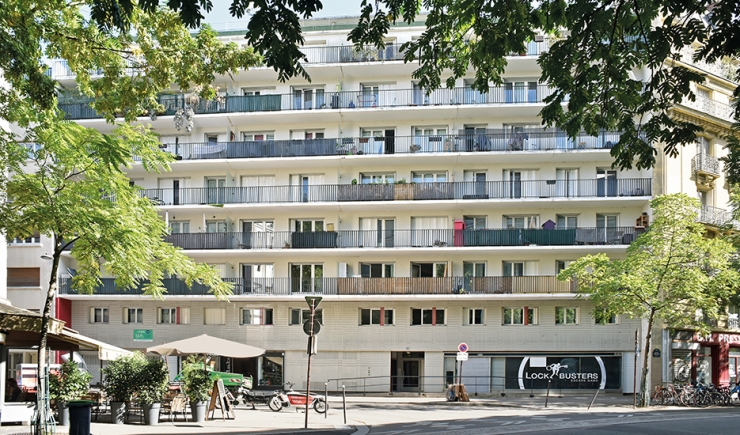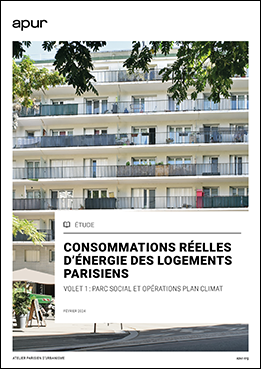Based on an unprecedented analysis, Apur presents an overview of the final energy consumption, in 2022, of more than 76,000 social housing units in Paris and shows the changes in consumption from before and after renovation work carried out on 9,000 social housing units renovated under the Paris Climate Plan.

The study, conducted in close collaboration with the City of Paris Department of Housing and Living Environment and the City of Paris social landlords Paris Habitat, Régie Immobilière de la Ville de Paris and Elogie-Siemp, forms a useful addition to existing monographs and case studies. The size of the housing panel enables a statistical analysis to be made of the net energy consumption of dwellings according to their heating system and period of construction.
Based on the final energy consumption data of energy suppliers made available by recent legislative developments, the 2022 report highlights the decisive impact of the heating mode on levels of consumption. For dwellings equipped with electric heating, the median final energy consumption is 65 kWh per m² per year, for dwellings with individual gas heating it is 129 kWh. For housing with collective heating, median consumption for gas heating is 174 kWh per m² per year and 140 kWh for district heating systems.
The analysis of the impact of renovation work reveals an average annual energy saving of about 28%, with disparities ranging from 18% to 31% depending on the work done. This corresponds to economising, on average, 2,236 kWh per year per housing unit, that is a saving of €200 to €450 per year per household depending on the heating energy used (2023 prices). The rebound effect - i.e. an increase in energy consumption following an initial decrease observed after renovation work - described in many studies on the same subject, particularly abroad, has not been observed in Paris operations. This may however be at the root of moderate decreases of energy consumption observed in certain operations.
These initial results, which are to be shared and consolidated, raise questions on the levers and priority actions which accompany renovation of the social housing stock. Among the ideas put forward during discussion with the study’s partners were for example, the setting up of regular monitoring of final energy consumption in the social housing stock, as well as better documentation informing tenants of electrically heated dwellings of the risk of energy poverty and an increased awareness of how housing units are used, both in winter and summer.
The authors of the study present the results and the implemented method :








